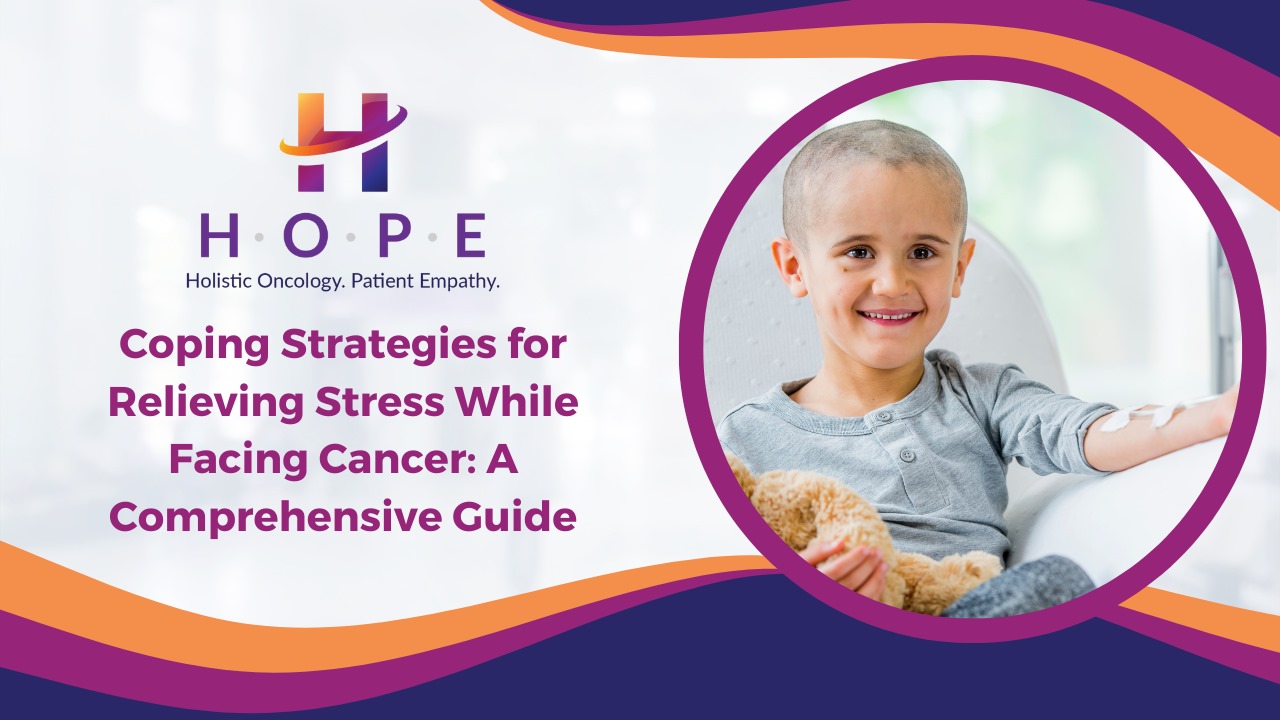Receiving a cancer diagnosis can be an overwhelming and distressing experience, impacting every aspect of a person’s life. Alongside the physical challenges of cancer treatment, individuals often face significant emotional and psychological stress. Managing stress is essential for overall well-being and can enhance the effectiveness of cancer treatment. In this comprehensive guide, we explore a variety of strategies for relieving stress and promoting emotional resilience during the cancer journey.
Understanding Stress in the Context of Cancer:
Stress is a natural response to challenging or threatening situations, triggering physiological, emotional, and behavioral changes. When facing cancer, stress can arise from various sources, including uncertainty about the future, fear of treatment side effects, financial concerns, and social support deficits. Chronic stress can negatively impact immune function, exacerbate treatment side effects, and contribute to psychological distress.
Recognizing and Acknowledging Stress:
The first step in managing stress is acknowledging its presence and understanding its impact on physical and emotional well-being. Some common signs of stress in individuals with cancer may include:
- Feelings of anxiety, worry, or fear
- Difficulty sleeping or changes in sleep patterns
- Irritability, mood swings, or emotional outbursts
- Fatigue, low energy, or lack of motivation
Physical symptoms such as headaches, muscle tension, or gastrointestinal distress
By recognizing these signs, individuals can take proactive steps to address stress and cultivate resilience throughout the cancer journey.
Practical Strategies for Stress Relief:
Mindfulness and Meditation:
Practice mindfulness meditation techniques to cultivate present-moment awareness and reduce stress.
Participate in guided imagery or progressive muscle relaxation exercises to promote relaxation and stress reduction.
Deep Breathing Exercises:
Practice deep breathing exercises, such as diaphragmatic breathing or square breathing, to calm the nervous system and promote relaxation.
Set aside time each day for focused breathing exercises, incorporating them into daily routines or relaxation rituals.
Physical Activity:
Engage in regular physical activity, such as walking, swimming, or yoga, to reduce stress levels and improve overall well-being.
Choose activities that are enjoyable and sustainable, adapting exercise routines to individual energy levels and physical abilities.
Creative Expression:
Explore creative outlets such as art therapy, writing, or music to express emotions, reduce stress, and foster self-expression.
Keep a journal to record thoughts, feelings, and experiences related to the cancer journey, allowing for reflection and emotional release.
Social Support:
Seek support from friends, family members, support groups, or online communities to share experiences, receive encouragement, and access practical assistance.
Prioritize relationships with individuals who offer empathy, understanding, and nonjudgmental support during challenging times.
Relaxation Techniques:
Incorporate relaxation techniques such as aromatherapy, massage, or warm baths to promote relaxation and alleviate physical tension.
Create a calming environment at home with soothing music, dim lighting, and comforting scents to enhance relaxation and stress relief.
Mind-Body Practices:
Explore mind-body practices such as acupuncture, acupressure, or Reiki therapy to balance energy flow, reduce stress, and promote overall well-being.
Consult with qualified practitioners experienced in supporting individuals with cancer to ensure safe and effective treatment.
Cognitive-Behavioral Strategies:
Learn cognitive-behavioral techniques such as cognitive restructuring, problem-solving, and assertiveness training to manage stressors and enhance coping skills.
Challenge negative thought patterns and replace them with more adaptive, balanced perspectives to promote emotional resilience.
Spiritual and Existential Exploration:
Engage in spiritual practices such as prayer, meditation, or attending religious services to find solace, meaning, and connection during times of uncertainty.
Reflect on existential questions related to life, purpose, and mortality, seeking guidance from spiritual leaders, counselors, or existential therapists.
Professional Support:
Consider seeking support from mental health professionals, counselors, or therapists specializing in oncology and cancer survivorship.
Participate in individual counseling, group therapy, or psychoeducational programs tailored to the unique needs and challenges of individuals with cancer.
Managing stress during cancer treatment is essential for promoting emotional resilience, enhancing treatment outcomes, and improving overall quality of life. By implementing a comprehensive approach to stress relief, individuals can cultivate coping skills, foster resilience, and navigate the complexities of the cancer journey with greater ease and grace.
Through mindfulness practices, physical activity, creative expression, social support, relaxation techniques, cognitive-behavioral strategies, spiritual exploration, and professional support, individuals can empower themselves to face the challenges of cancer with courage, strength, and resilience. Remember, you are not alone, and support is available to help you through this journey.








